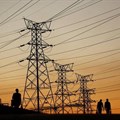The recent announcement by President Cyril Ramaphosa in his 2023 State of the Nation Address of various loans and incentives to move South Africans onto solar energy bodes well for the residential property market.

Paul Badrick, head of real estate and construction at BDO South Africa
Individuals can now claim a rebate to the value of 25% of the cost of new and unused solar photovoltaic (PV) panels, up to a maximum of R15,000 per individual. It is a significant win for property owners, but also a solid case for investment as the market responds more positively to homes fitted with renewable solutions.
In the first half of 2022 alone, households imported more than R2.2bn worth of solar photovoltaic (PV) panels, and estimations are that this will more than surpass what the government itself has been able to procure in solar energy over the last decade once installed.
Increase in home value
Early studies are also predicting that the installation of a solar photovoltaic (PV) system can potentially increase the value of a home by 3% to 8%. This could be a significant increase in value, particularly for properties in areas where solar power is more popular. Solar installations can also have a positive impact on a property owner's monthly costs. By reducing energy bills, solar panels can help homeowners save money on electricity costs over the long term. Value can be realised for the property itself as well as the property owners who are providing solar energy for their tenants.
Aside from the cost-saving and value-adding benefits, solar panels are a visible sign of the property's commitment to sustainability and clean energy. Solar investment is seen as a statement of the property owner's forward-thinking approach to energy use. This is appealing to environmentally conscious buyers who are willing to pay a premium for eco-friendly features, and is particularly appealing for younger buyers who prioritise sustainable living.
Hartmut Winkler 19 Apr 2023
Rental or rent-to-own contracts
For property owners who have limited capital to fund a solar installation, the significant benefits of solar means that even though the cost of solar PV installations is still high, many installers offer rental or rent-to-own contracts. These contracts usually offer tailored packages according to specific residential requirements and generally include the cost of regular maintenance and system upgrades, making installation much more affordable.
Finance groups such as banks who are also seeing solar as a good investment are coming on board with specialised finance for installation purchases. This is provided it is installed professionally, compliant with relevant regulations, and is adequate for the home’s needs. Almost all major banks now offer loans to provide finance to their customers specifically for backup utilities due to their expense – whether it be generators, batteries, or renewable energy sources such as solar.
Solar upgrades to rental properties
In the residential rental market, tenants are becoming much more solar savvy when it comes to choosing their rental property. They are more likely to seek properties that already have renewable solutions in place. Landlords must recognise this trend or risk their investment losing value. For those landlords who want to retain their current tenants, solar upgrades must be considered which does present an initial cost outlay upfront, but will secure long-term value in tenant retention.
As much as solar installations have been touted the way of the future, our unique South African circumstances dictate that solar is very much necessary in the present. The accelerated rate of adoption of solar across the country – and across demographic levels – is evidence that it will not be long before solar will be considered as much of a fixture as a geyser itself.
Antonie Goosen, Meridian Realty 5 Apr 2023
No downside to installing solar
There is simply no downside to installing a quality solar system. Whether you own or rent residential property, the impact of solar installations on property is significant and multifaceted. From increasing property value and attractiveness to reducing environmental impact and saving money on energy costs, the benefits to property owners are endless. As renewable solutions become more cost effective, popular and accessible, we are almost guaranteed that the solar residential revolution will continue well into the foreseeable future.































